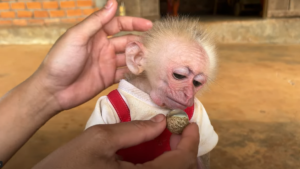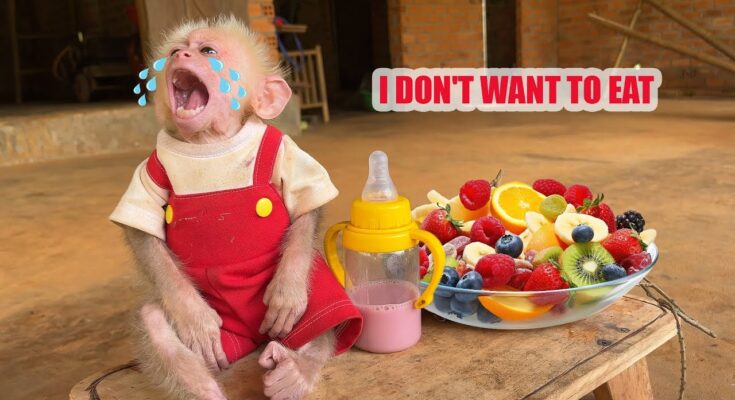When a baby monkey refuses to eat or drink, it’s crucial to act swiftly and carefully, as dehydration and malnutrition can rapidly become life-threatening. First, consult a veterinarian specializing in primates. They can perform a thorough examination to rule out any underlying medical issues, such as infections, dental problems, or gastrointestinal blockages.

In the meantime, ensure the monkey is kept warm and comfortable, as stress can exacerbate its refusal to eat or drink. Use a syringe or dropper to offer electrolyte solutions, like Pedialyte, to prevent dehydration. Avoid force-feeding, as this can cause aspiration or further stress.
Try offering a variety of foods to stimulate interest. Baby monkeys might respond better to familiar tastes and textures, so provide small pieces of fruit, such as bananas or papayas, or specially formulated primate milk replacers. Sometimes, blending fruits into a smoothie-like consistency can entice them to drink.
Maintain a calm and reassuring environment. Minimize loud noises and sudden movements, as these can stress the monkey further. Monitor the monkey closely for any signs of improvement or worsening conditions, and keep detailed notes to share with the veterinarian.
Ultimately, professional guidance is essential. The vet might recommend specific dietary supplements, medications, or feeding techniques tailored to the monkey’s needs. Immediate and attentive care, combined with expert advice, is the best approach to helping a baby monkey regain its appetite and health.
